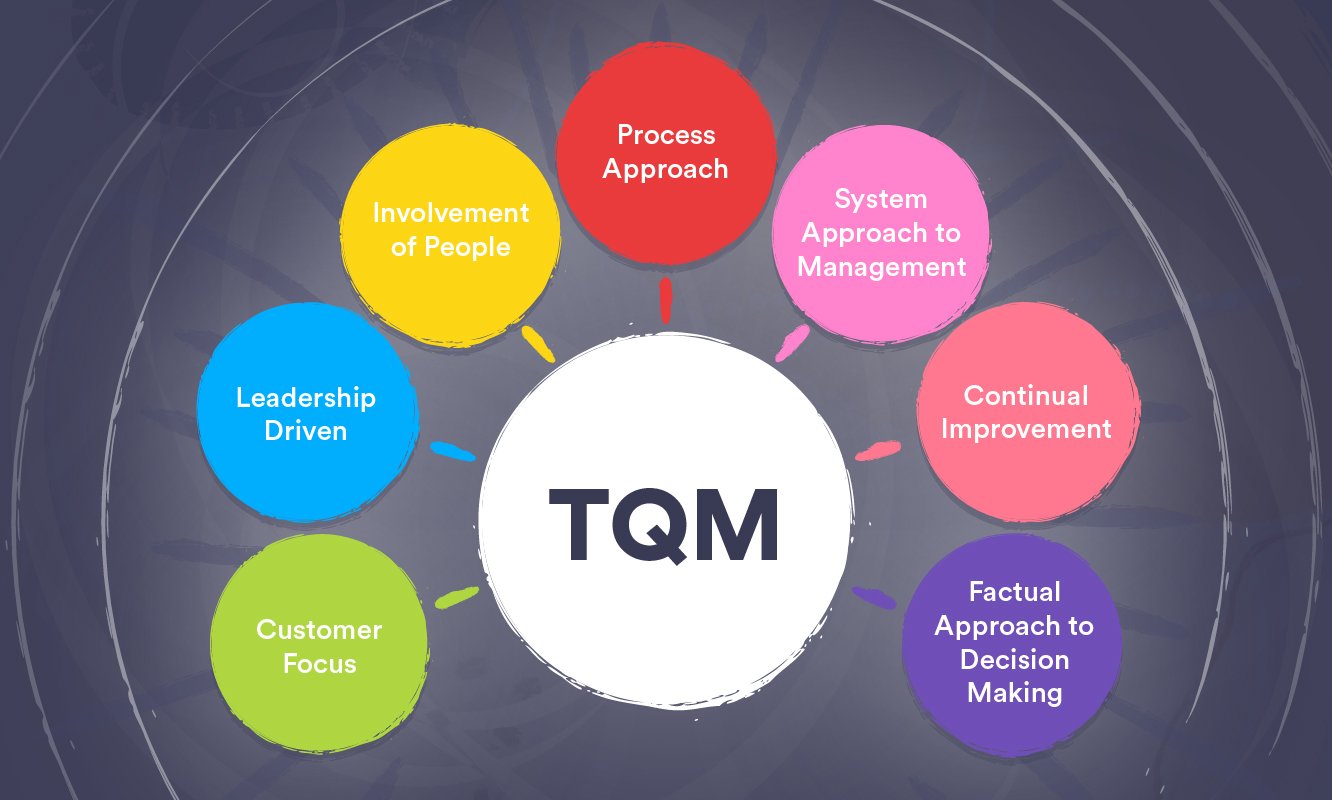Start improving with Life QI today
Full access to all Life QI features and a support team excited to help you. Quality improvement has never been easier.

Organisation already using Life QI?
Sign-up

Total Quality Management or TQM is a quality management approach often used in Quality Improvement (QI), with a focus on producing quality products and services in order to fulfil customer needs. TQM is described as: “an effective system for integrating the quality development, quality maintenance, and quality improvement efforts of the various groups in an organisation so as to enable production and service at the most economical levels which allow full customer satisfaction.”
In this blog we’re going to find out all about TQM, the benefits of using TQM, its tools and principles!
The concept was invented by Armand V. Feigenbaum - also known as the ‘Father of Total Quality Control,’ with his book ‘Quality Control: Principles, Practice, and Administration’ setting out the principles of TQM. In this 1951 book, Feigenbaum set out the most important principle of TQM: making the customer the heart and focus.
Essentially, TQM moves away from the then-popular focus of technical manufacturing quality and looks at what would be best for the customer. By involving all team members and encouraging them to maintain high standards of work across the company, TQM can help improve ‘employee productivity, increase customer satisfaction, and achieve competitive advantage.’
Here are Dr Feigenbaum’s elements of total quality which lead to a total customer focus:
Often described as the precursor to other quality methods such as Lean and Six Sigma, TQM provides a framework to ‘implement effective quality and productivity initiatives in every aspect of business operations.’
TQM is often used in healthcare, with those organisations who use the TQM method spending time developing leaders to coach staff in the principles, ensuring that all team members have an element of improvement training which can lead to continuous improvement.
Let’s take a look at some of the principles which form the basis of Total Quality Management. The 6Cs are really important in TQM – these are:
These form the basis of what is important in TQM and the focus which will help your organisation succeed in its quality journey.
There are a wide range of TQM tools that can help you and your team get started on TQM. Here’s a list of some of the most commonly used tools which will help you start your Total Quality Management journey:
Some of these methods may be familiar to you from other areas of quality improvement, and from previous blogs. These are all commonly used and well recognised tools in TQM.
As Kaoru Ishikawa said ‘As many as 95% of quality problems can be solved with seven fundamental tools’.
He lists them as:
An impressive, but also potentially daunting list of tools! This is where Quality Improvement software solution, such as Life QI, can really help organisations in their planning, review and execution of QI work – enabling you to keep all your QI work in one place, review, monitor and share with others in order to spread learning.
Using TQM can provide a range of benefits across organisations – which range from higher productivity to reduced costs and better cost management. Let’s take a look at the other potential advantages of using TQM, as set out by the ASQ here:
Essentially, TQM is all about continuous improvement in processes – while Total Quality Control – or TQC is all about maintaining quality standards throughout the process.
The Institute for Healthcare Improvement discusses TQM, looking at the literature to demonstrate that there are mixed impacts from using the methodology. They surmise: ‘Some research suggests that essential practices for TQM success (e.g. staff empowerment, systemwide focus on quality improvement, customer focus) have a mixed effect on total performance, with stronger evidence for impact on clinical outcomes than on the system as a whole for other elements of performance (e.g., efficiency, overall competitiveness).’ They highlight that there are obstacles to succeeding within the TQM approach, namely the lack of leadership support and lack of employee engagement.
Leadership approach is critical to success in TQM, with the IHI citing leadership engagement ‘and the transition from a top-down management style to a more collaborative approach with managers and staff as crucial to longer-term success’.
There is no doubt that Total Quality Management is a method that can be really successful within organisation – but it does rely on active – rather than passive – buy in and engagement from organisation leaders. If this is something that you have in your organisation, then Total Quality Management could be a methodology to explore further!
Full access to all Life QI features and a support team excited to help you. Quality improvement has never been easier.

Organisation already using Life QI?
Sign-up